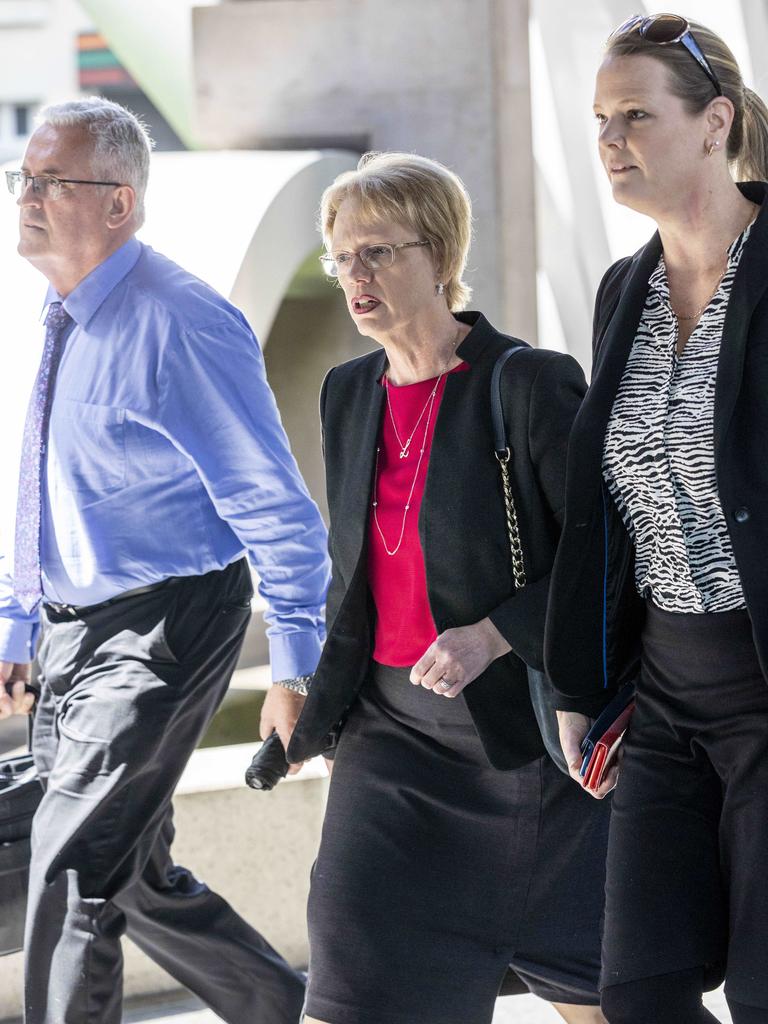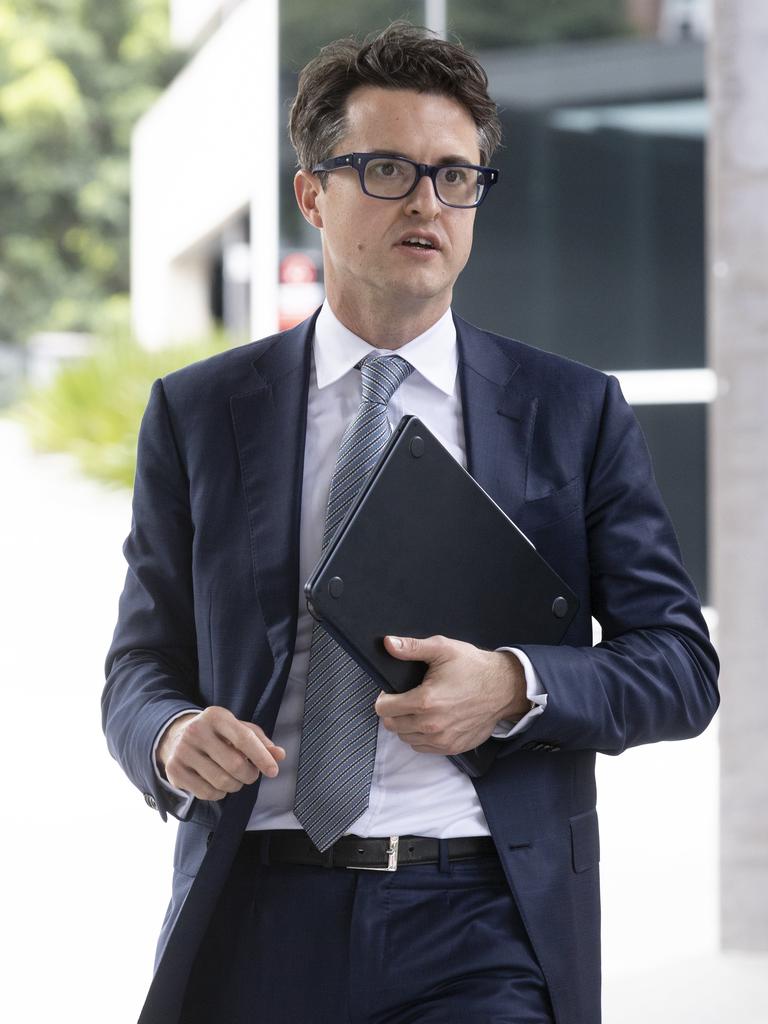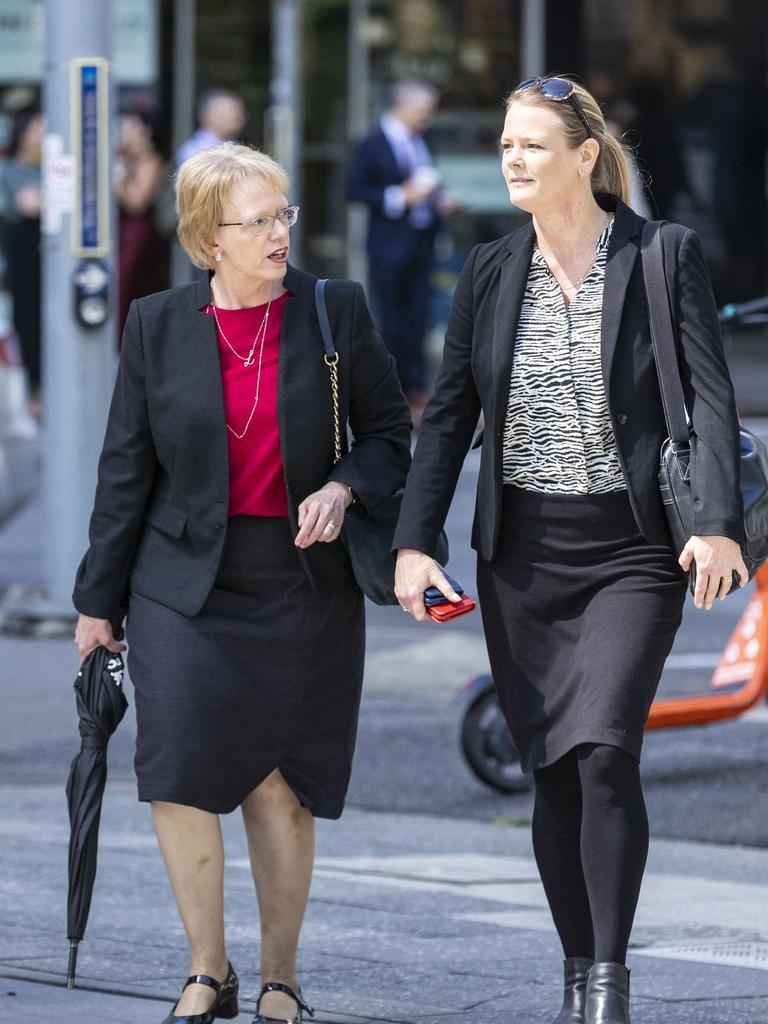Forensic lab boss refutes claims she did nothing to act on police concerns over faulty DNA testing
The boss of Queensland Health’s forensic testing lab said she was likely the only person who knew about DNA testing issues raised by police and that ‘in hindsight’ she should have immediately provided them with an internal review.
The boss of Queensland Health’s forensic testing organisation said she was “probably” the only person who knew about issues raised by senior police officers and that she chose to withhold an internal review from them that addressed their DNA testing concerns.
Forensic and Scientific Services (FSS) acting executive director Lara Keller today again refuted claims she did nothing to act on police and FSS employees’ concern over the faulty DNA testing threshold despite having knowledge of the issue six months prior.
Ms Keller appeared visibly frustrated in the Brisbane Magistrates Court witness box on Tuesday as she attempted to explain verbal conversations and multiple emails between her and police Inspector David Neville and his boss, Superintendent Bruce McNab, regarding their concerns over the DNA testing threshold.

Counsel Assisting, Michael Hodge KC, resumed his second day of questioning of Ms Keller at the ongoing independent Commission of Inquiry into Forensic DNA Testing in Queensland, asking her why she made the decision to withhold the results of an internal review that had been conducted in response to questions raised about the threshold.
Ms Keller was shown an email sent from Supt McNab to Insp Neville in June stating the results of the internal report he had been waiting for since March 25 would not be handed over until Queensland Health sought their own legal advice.
Ms Keller said she believed the results of the internal review would be released alongside a separate external investigation headed by FSS scientist Cathie Allen, but “in hindsight” it would have been wise to provide police with the report.
“My understanding from that conversation is I said it would be good to get that external review going … and the (internal) report would ultimately be put into that,” Ms Keller said.
“It was all about the timing … in hindsight should we have given it to the police straight away? Of course we should have.
“It’s easy to criticise in hindsight, that's the decision that was made at the time.”

When asked who else knew of the extensive police concerns about the high DNA testing threshold, Ms Keller said: “I don't know. Probably was (only) me.”
And when asked if she thought it important that Queensland Health inform police of the crucial 2018 change to the DNA testing process which ultimately led to the botched results, Ms Keller said communication was the responsibility of her underling, Ms Allen.
“It’s inferred given her role,” she said.
Ms Keller also maintained addressing any scientific issues relating to the testing was “outside of her role” and that it was ”unreasonable” to assume she understood the severity of the testing issues raised as head of FSS.
“Science is outside of the role I’m employed to do,” Ms Keller said.
“I just happen to be a scientist.”
Mr Hodge also asked Ms Keller why it took ten days for DNA testing to cease in the lab once the bungle had become public knowledge.

The inquiry was told Ms Keller was asked to halt testing on September 20 but that testing did not cease until September 30, with Director-General Shaun Drummond previously giving evidence he also did not find out until September 29.
When asked if testing only stopped when communication finally reached Mr Drummond, Ms Keller replied, “seems to be.”
Mr Hodge further questioned Ms Keller as to why she did not inform Health Minister Yvette D’Ath during a meeting about the historical issues raised by Queensland Police the year before.
He also asked why she did not inform the minister about testing data showing the threshold discrepancies she was provided with by police, two days before it became public knowledge, through the Women’s Safety and Justice Taskforce report findings.

Ms Keller said she did not inform Ms D’Ath about the issues and to call the information relevant was “easy to say now.”
The Commission of Inquiry, which started on June 13, is to examine a decision made in 2018 to not further test samples with low levels of DNA, resulting in thousands of pieces of evidence from crimes like rape and murder being ignored.
It was established to ensure transparency, identify opportunities for improvement and ensure public confidence in the collection of DNA and the testing and analysis undertaken in Queensland, and in the criminal justice system more broadly, according to Queensland Health documents.
The inquiry continues on Wednesday, with a final report anticipated by December 13.


